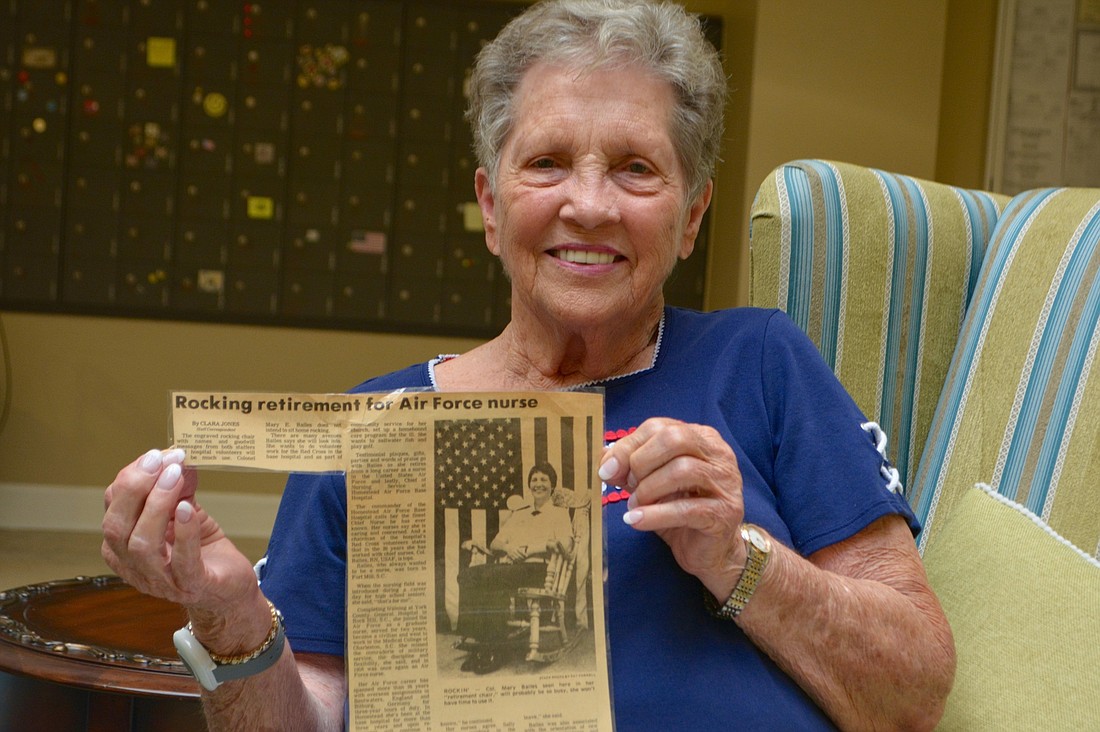- November 23, 2024
-
-
Loading

Loading

When 84-year old Colonel Mary Bailes entered the Air Force as a flight nurse in 1958, the United States was already three years deep in the Vietnam War. Primarily stationed throughout the U.S., Bailes completed two full tours overseas: one in England from 1963 through 1966, and a second in Germany spanning 1967 through 1970.
But regardless of where she was stationed at a given time, the evolution of women's rights throughout her service, she says, has had a major impact on her perception of American freedom.
“I always wanted to be a nurse. [Flight nursing] just played right into what I wanted to do.”
“We didn’t only go into Air Force bases. We would go into Army and Navy and Marines. Meeting people and socializing with them — it was just fun. Just meeting people. Taking care of their health and well-being, and seeing that they get back to health. And teaching them how to take care of whatever is wrong with them.”
“I wanted to serve my country, and I felt like I had the best job in the military. You’re taking care of everybody — dependents and the military men and women. The women were few and far between when I went in, but there were a lot of nurses.”
“Teaching one-on-one was my ultimate goal — making sure [soldiers] understood what was going on with their bodies.”
“It’s just all evolved. [Women in World War II] paved the way. World War II couldn’t have happened without the women.”
“I’ve seen a lot of changes for women. Because the rank was not there for women. As an example, the chief of the Corps — when I first went in, in 1958 — was only a major. But that changed: She became a lieutenant colonel, and shortly thereafter she was able to be a full colonel.”
“Another example in my time was that, in my first assignment, the men could live off base if they wanted to, and that way they would get paid for their housing. But women? They were afraid something would happen to us, so we had to stay on base. … But that changed. We broke down each barrier.”
“I saw what it was like in other countries, and so I measure how other people live and how less freedom that they have and how restrictive it is there. And I come back to this country, and I just think, ‘I’m so thankful that I live in this country.’”
“I think we just have the freedom to do what we wish. Freedom is a wonderful word. You can’t really pick out one [specific freedom or right] above the others because they’re all precious.”
“I think that the word freedom is just a precious word. And you don’t ever want to lose it. Freedom means so many wonderful, wonderful things.”